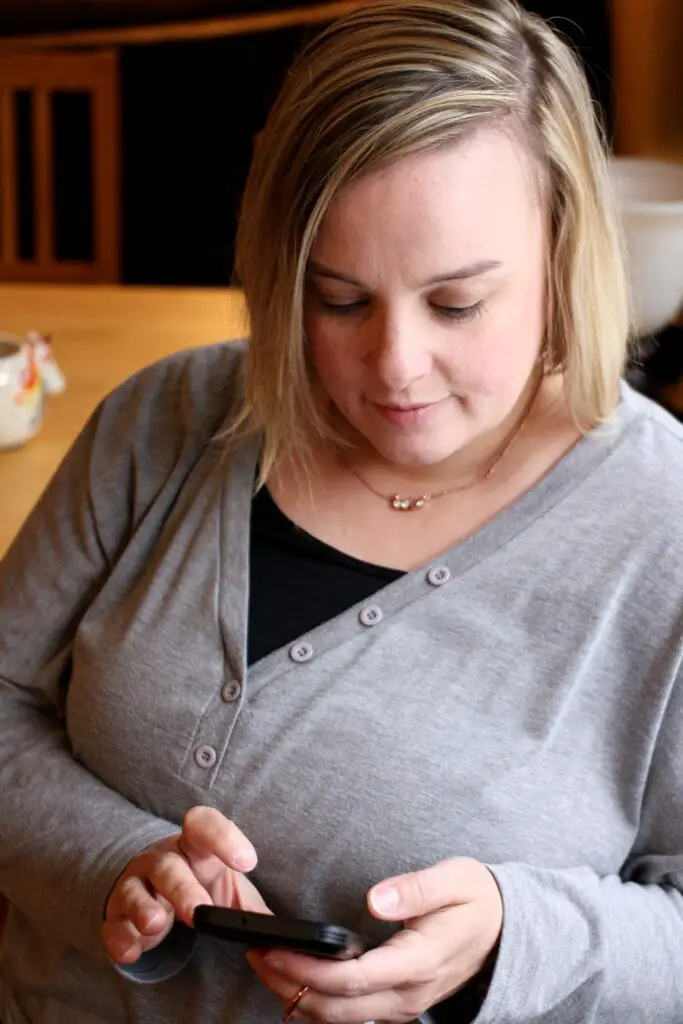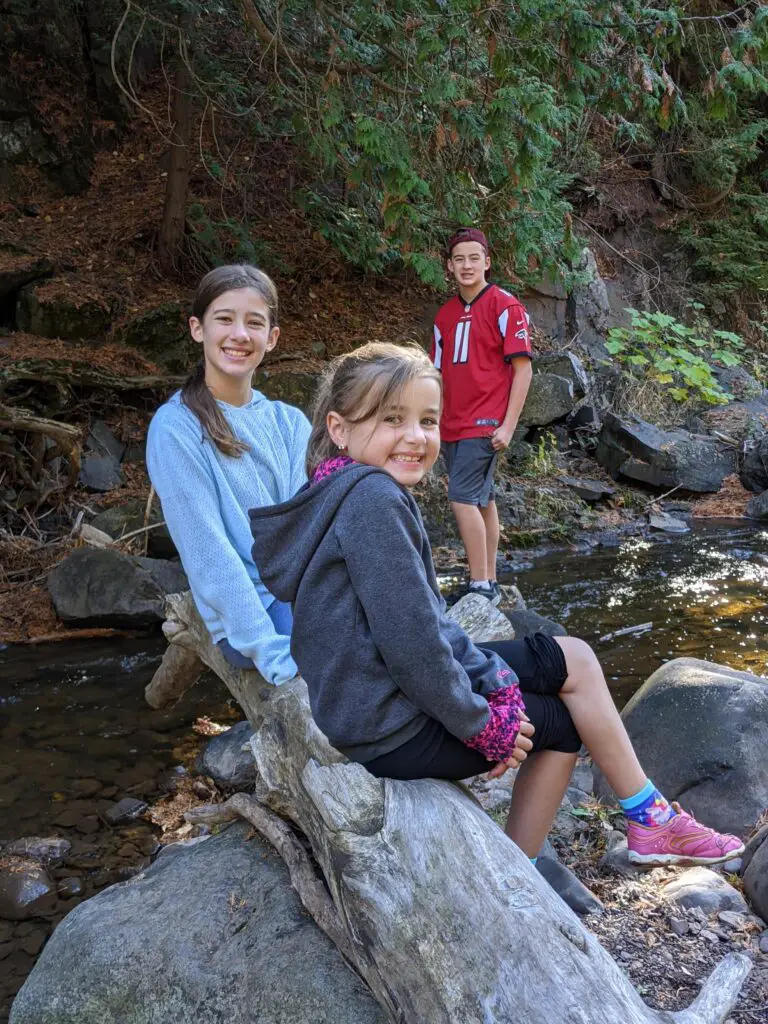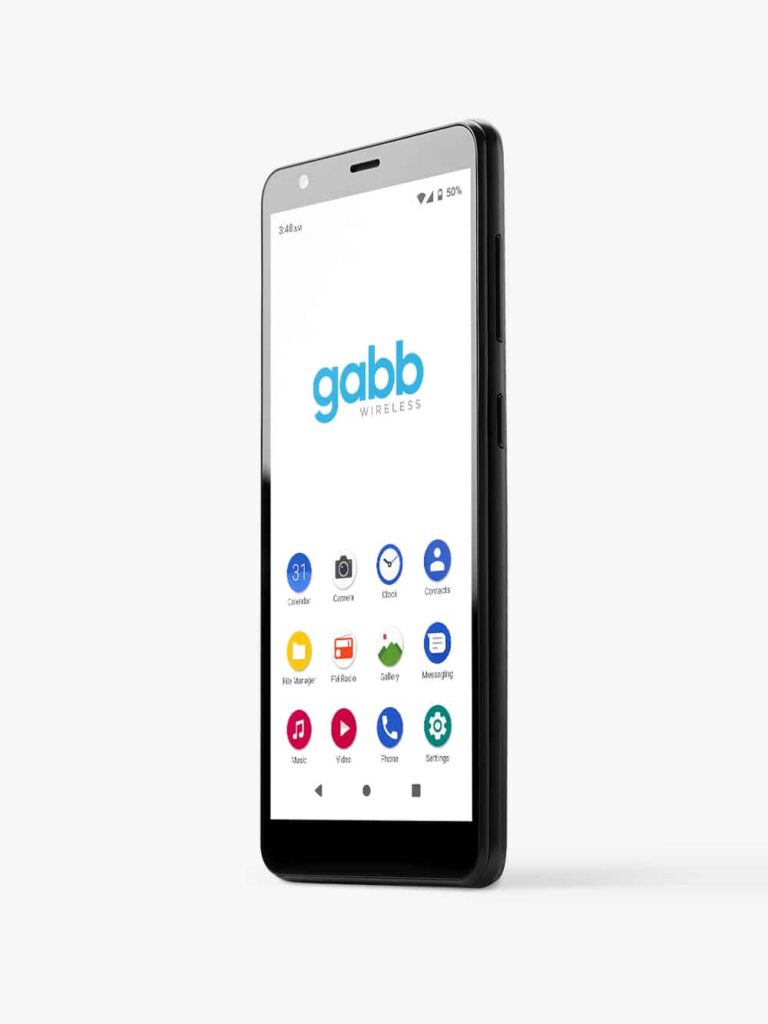I will not let my teens near social media yet
That sounds a bit extreme, doesn’t it? I admit it does but hear me out on this. I understand that to some I might sound like the “holier than thou mother” who won’t let her children eat sugar, insisting that raisins are “candy enough” for them. (Yes, I knew someone like that and more power to her because there’s no way I could do the same.)
As an Amazon Associate I earn from qualifying purchases.
I am a social media manager and influencer but I will not let my teens near social media yet
I’ve been in this blogging/influencer/social media game since 2011. I have seen a lot in 11 years. I remember the days when Facebook was king and Facebook business pages would be able to reach thousands of people merely by posting once a day. I remember the chronological timeline. I remember the introduction to this thing called a News Feed and then there was this algorithm. The algorithm felt like this living, breathing entity intent on pushing the little guy down. There was a kind of camaraderie in the beginning between small businesses, social media managers, and influencers (who weren’t even called influencers) to take the man down and beat the system. Looking back it was kind of nice; we all knew the Internet was a huge space with more than enough room in it for all of us.
Things change. The social media platforms are smarter, their algorithms top notch and us little guys are realizing that unlike before we really do need to pay to play. The most alarming part of these changes are seeing how its impacting the kids around me.
When Facebook first came out and you had to have a .edu email address to belong to it I was graduating college, 23-years-old. According to neurologists the human brain isn’t even fully developed until the age of 25. Let me tell you, the unecessary drama I got myself into on Facebook by posting photos of myself and my friends out and about living our best lives, it was wasted emotional energy. To be honest, I was posting those photos because I wanted people to see how great my life was. I did want them to be jealous. I was showing my highlight reel. We all were. If you’re reading this now, and remember that time, you cannot tell me that you didn’t do the same thing at least a few times.
Even so, I love social media and the potential it has to bring people together.
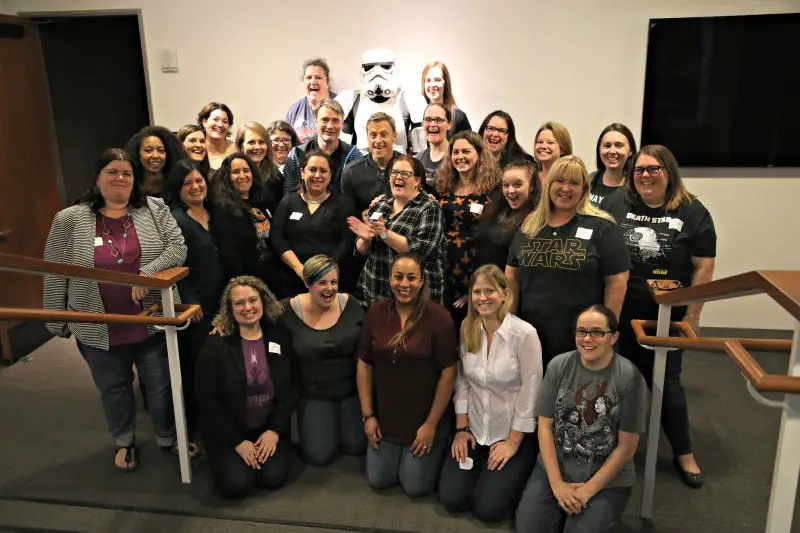
This is my job. I help create online communities for small businesses. I help women who are mothers and feel like they’ve lost themselves find the resolve and permission to invest in who they are again. We were not created to do life alone and social media helps facilitate community. Is it a substitute for real human interaction? No but during the lockdowns think of how bad things could’ve been if we didn’t have social media.
Talk about a time when the entire world came together. You had artists sharing their work for free. Authors reading their stories to kids during lunchtime because the schools were closed. Mo Willems taught an art class for goodness sakes! Social media, in all of its forms is not inherently evil.
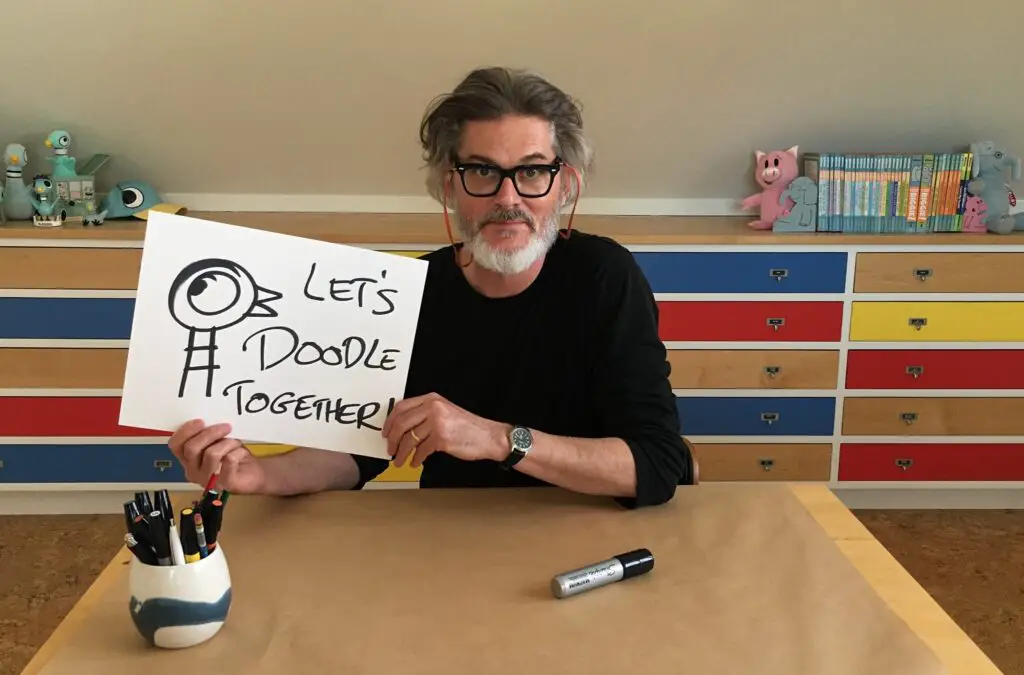
The stakes are higher now that my kids are involved.
I have a friend, Sally, who told me years ago, that whatever I did, I needed to hold off on getting a smartphone with social media apps for my kids for as long as I could. She said that was really her one piece of advice for parenting teens she wished she had known. I naturally look up to her so I heeded her advice. It was like a voice in the back of my mind since my oldest was about 9-years-old at the time.
I started paying attention to what was happening in the world of social media not just from the business and marketing side of things but as a user and parent. I know how ads are created. I know the very detailed and specific ways I can target and curate the exact audience I want to see my client’s product. As I started to hear more women talk about struggling with highlight reel depression, you know feeling bad because you’re comparing your behind the scenes to everyone’s perfect highlight reels, I looked at my daughters and had this revelation of how I would’ve handled social media if it had been around when I was a teenager. If grown women are feeling this bad there’s no question my girls will fall into this as well. Why wouldn’t they?
More and more studies have come out regarding the effect that social media has on the developing brain of a child and adolescents. Recently, Fox News pubilshed an article on how TikTok acts on children’s brains like a “candy store”. I first read the report in the New York Post which summarized an investigation the Wall Street Journal did in July of 2021.
Basically, WSJ created over 100 automated accounts on TikTok to watch hundreds of videos to see how the TikTok algorithm works. It’s insanely accurate in how it puts together each user’s For You page or feed. WSJ wanted to know why. The really simple answer is that the only piece of information TikTok’s algorithm needs is how long someone lingers on a video. That’s it. Accurate? Yes. Big Brother-ish? Feels like it but they’ve just figured out a way to collect an important piece of behavioral data. The problem, as I see it, is that this highly accurate feed fuels an addiction that most adults have a hard time breaking, much less a child whose brain isn’t fully developed until 25-years-old. Click here to watch the video of their report.
What to do if you’ve already given social media access to your child
Sure you can make them cut everything off cold turkey. Sounds lovely….said no one ever. We know that these apps were designed to provide a dopemine hit in the brain, they were made to want us to come back for more. Handing a child a huge candy bar, allowing them to start eating it and then dramatically taking it away forever, is a little unreasonable. Remember, your teenager lacks the ability to think rationally. Adults, meaning over the age of 25 can think through a situation with good judgement thinking through longterm consequences because their prefrontal cortex is fully developed. A teenager makes decisions through the amygdala; the amygdala is the emotional part of the brain.
In teens’ brains, the connections between the emotional part of the brain and the decision-making center are still developing—and not always at the same rate. That’s why when teens have overwhelming emotional input, they can’t explain later what they were thinking. They weren’t thinking as much as they were feeling.
Understanding the Teen Brain
Not all is lost but I think we have to understand that we can’t just expect our teenagers to use rational thinking when it comes to this. They’re emotional, they make emotional decisions. It’s biology. Expecting them to do otherwise is unfair.
Setting Social Media Boundaries
- Get on the social media apps yourself and understand them. – That’s my best advice. Don’t parent with your head in the sand, especially when it comes to the mental health of your kid. There’s no harm in downloading some of the apps yourself and playing around with them so you understand how they work, why they’re appealing and what your child is up against. If you need help in this area you can email me directly – ftmalways (at) gmail (dot) com.
- Look into the ways parents can link up their account with their child’s. TikTok and YouTube allow parents the ability to set up accounts and link their account to their child’s. TikTok’s is called Family Pairing and YouTube is Google Family Link. Both Apple and Android give parents the ability to set direct time limits on certain apps.
- Social Media Agreement – Some families opt to have a Social Media Agreement where they meet, discuss family rules of social media – how long it’ll be used, when it will not be allowed, etc – and then everyone in the family signs it.
- Invest in Parental Control Apps – There are quite a few options here. Some are free, although their functionality is limited, most offer outstanding premium options. My husband and I looked into these when we were looking for a phone plan for our son but the cost wasn’t efficient for our family’s budget. Click here for options.
- Watch The Social Dilemma on Netflix – I cannot say enough how important this documentary is and it’s one that every family should watch together with their tween and teen. The film features interviews with many former employees, executives, and other professionals from top tech companies and social media platforms such as Facebook, Google, Twitter, and Mozilla. When my son heard that if you weren’t paying to be on a platform because it was free, it was because you were the product being sold, it really opened his eyes.
But my teen needs a phone, there’s nothing that I can find that’s a dumb phone!
A young grasshopper but there is. We were in the exact same position; my son needed a phone. Long gone are the days of pay phones, even at school, and the kid needed a way to get in touch with us. Despite his promises to not do XYZ I was the rebel of my family so I guess I’m just not that trusting when it comes to my teenagers, plus every kids out there has multiple accounts, some that their parents don’t know about. How do I know? I’ve found them.
The problem is that the mobile companies create incredibly affordable plans with nice state of the art smartphones that you can merely purchase, add on to your existing mobile plan for a few extra dollars a month. Purchasing a parental control app is an extra cost on top of the existing monthly bill. I spent three weeks pouring over reviews, looking at various parental control apps and settled on one and only one solution: Gabb Wireless.
This is not sponsored by Gabb at all, I like their service, their phone doesn’t look like an old school flip phone (which was my husband’s solution for the middle schooler). Here’s what you need to know:
- The Gabb Wireless phone has the Internet turned off.
- No Social Media Apps or access to App Store
- No Games
- Spam filter for texting – in order to receive MMS messages you have to pay extra monthly, our son opted out of that option since we told him he would need to pay for it.
- Unlimited talk and texting
- Reliable network access
- GPS Tracking
I know there are tutorials out there how to turn the Internet on for the Gabb phone and I know how to do it. I’ve told my son that I know how to do it. We’ve discussed the consequences for that decision should it happen.
Gabb also has a watch option that one of my neighbors uses and they’re please with it.
Social Media: The hill I’m willing to die on for my kids
We all have things we believe in, rules or standards we aren’t willing to break when it comes to our kids. Social media is mine, it may not be yours. That is okay. I’m not judging you. This is a really complicated, unprecedented world we’re parenting in. Our parents didn’t grow up with the Internet nor did they have to figure out how to parent children who have never lived a life without the presence of social media. Let that sink in – There is no guidebook on how to do this or if you should do it. I will, therefore, not pass judgement on you at all no matter the choice your family makes. I’m not just saying that. Lord knows there are enough things that I’ve messed up in my parenting lifetime to begin to pull the plank out of my eye out before I even consider looking at someone else’s parenting.
I’ve had a lot of conversations with my son about social media and allowing him to get a different phone, one that would give him access to everything. At the end of the day I told him that I just cannot under any circumstance bend on this issue. I’m empathetic and get where he’s coming from with most areas and for the most part our kids don’t have a ton of rules they have to adhere to.
After having a heart to heart with him, I said, “This is the hill I’m going to die on for you guys. I know too much how this works and I’ve seen how detrimental it can be for your mind.”

Resources for how social media affects children
Study and study is coming out about how social media affects a child’s brain. If you want to take a look at them, here are a few I’ve looked over, as well as some podcasts and documentaries I recommend. I’ve also had my super smart yet incredibly easy to understand brother-in-law, Dr. James Ankrum, PhD, look over a few resources.
Viewing personalized video clips recommended by TikTok activates default mode network and ventral tegmental area – Basically, the short, quick burst of entertainment that TikTok provides inhibits the ability to focus on a task which is a problem when you’re under the age of 25.
Parenting in a Tech World Facebook Group

